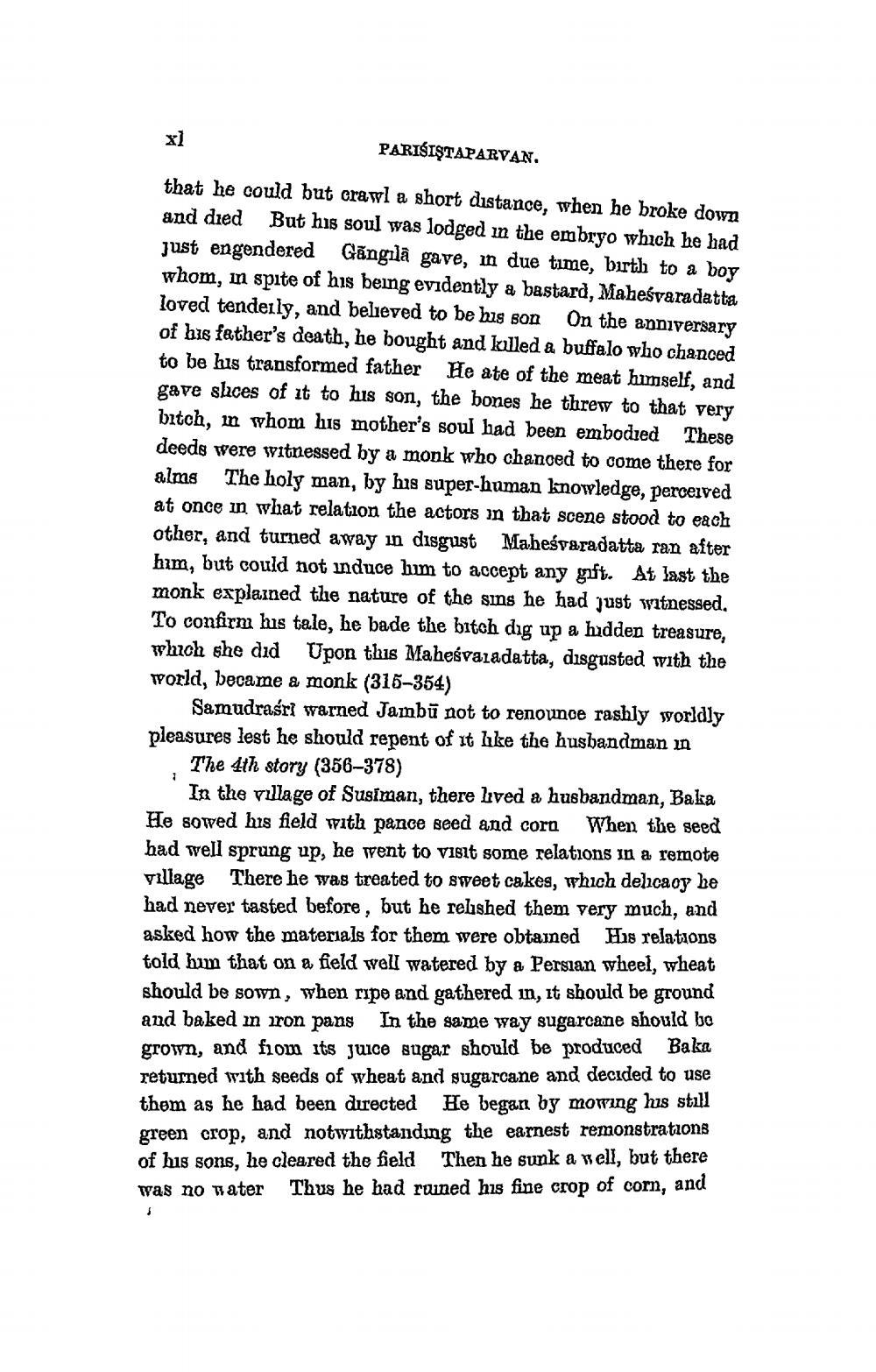________________
x)
PARISISTAPARVAN.
and died
that he could but crawl a short distance, when he broke down But his soul was lodged in the embryo which he had Just engendered Gangila gave, in due time, birth to a boy whom, in spite of his being evidently a bastard, Mahesvaradatta loved tenderly, and believed to be bus son On the anniversary of his father's death, he bought and killed a buffalo who chanced to be his transformed father He ate of the meat himself, and gave slices of it to his son, the bones he threw to that very bitch, in whom his mother's soul had been embodied These deeds were witnessed by a monk who chanced to come there for alms The holy man, by his super-human knowledge, perceived at once in what relation the actors in that scene stood to each other, and turned away in disgust Maheśvaradatta ran after him, but could not induce him to accept any gift. At last the monk explained the nature of the sins he had just witnessed. To confirm his tale, he bade the bitch dig up a hidden treasure, which she did Upon this Maheśvaiadatta, disgusted with the world, became a monk (315-354)
Samudrasri warned Jambu not to renounce rashly worldly pleasures lest he should repent of it like the husbandman in The 4th story (356-378)
T
In the village of Susiman, there lived a husbandman, Baka He sowed his field with pance seed and corn When the seed had well sprung up, he went to visit some relations in a remote village There he was treated to sweet cakes, which delicacy be had never tasted before, but he relished them very much, and asked how the materials for them were obtained His relations told him that on a field well watered by a Persian wheel, wheat should be sown, when ripe and gathered in, it should be ground and baked in iron pans In the same way sugarcane should be grown, and from its juice sugar should be produced Baka returned with seeds of wheat and sugarcane and decided to use them as he had been directed He began by mowing his still green crop, and notwithstanding the earnest remonstrations of his sons, he cleared the field Then he sunk a well, but there Thus he had ruined his fine crop of corn, and
was no water
↓




